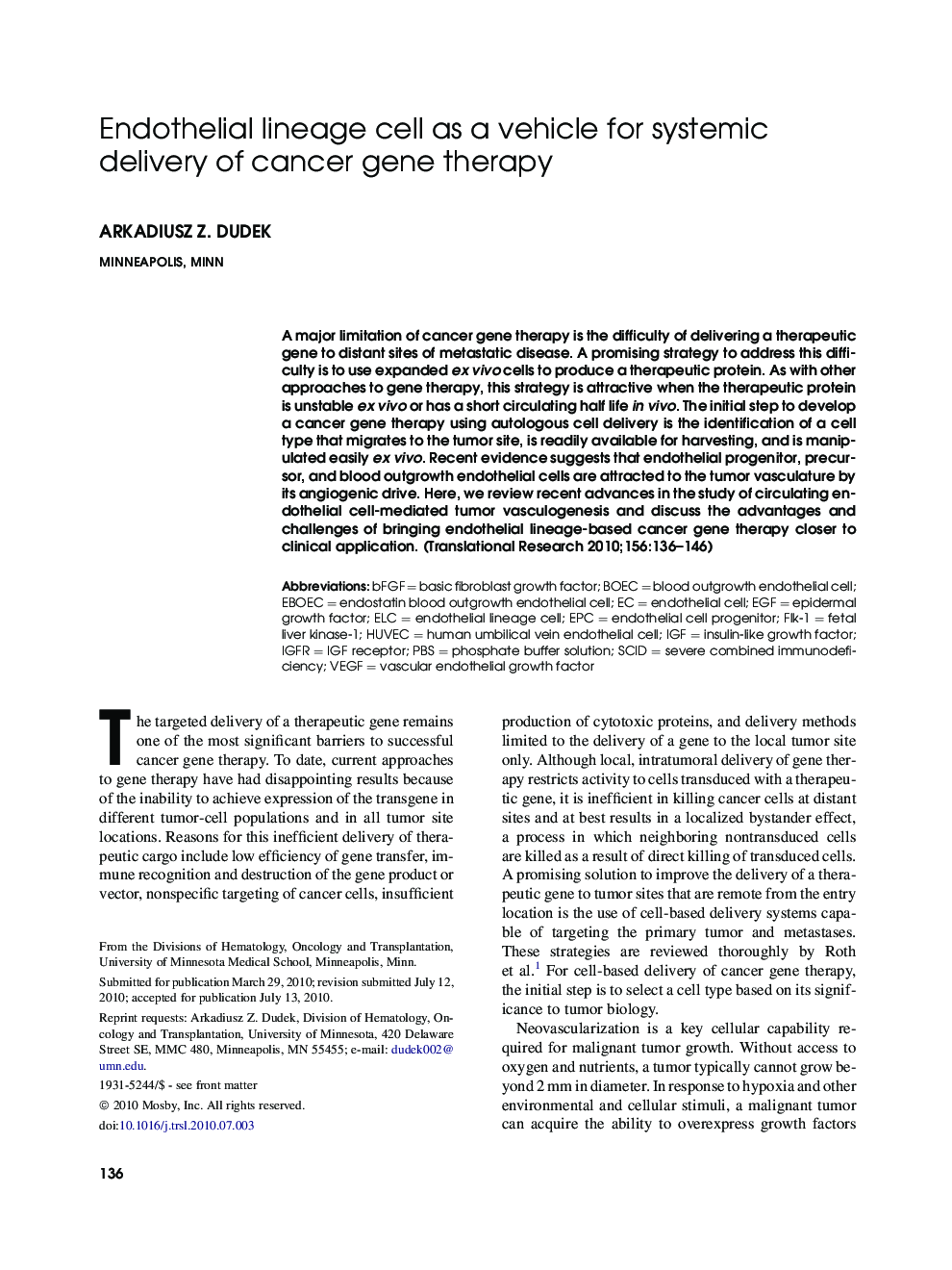| Article ID | Journal | Published Year | Pages | File Type |
|---|---|---|---|---|
| 3840833 | Translational Research | 2010 | 11 Pages |
A major limitation of cancer gene therapy is the difficulty of delivering a therapeutic gene to distant sites of metastatic disease. A promising strategy to address this difficulty is to use expanded ex vivo cells to produce a therapeutic protein. As with other approaches to gene therapy, this strategy is attractive when the therapeutic protein is unstable ex vivo or has a short circulating half life in vivo. The initial step to develop a cancer gene therapy using autologous cell delivery is the identification of a cell type that migrates to the tumor site, is readily available for harvesting, and is manipulated easily ex vivo. Recent evidence suggests that endothelial progenitor, precursor, and blood outgrowth endothelial cells are attracted to the tumor vasculature by its angiogenic drive. Here, we review recent advances in the study of circulating endothelial cell-mediated tumor vasculogenesis and discuss the advantages and challenges of bringing endothelial lineage-based cancer gene therapy closer to clinical application.
